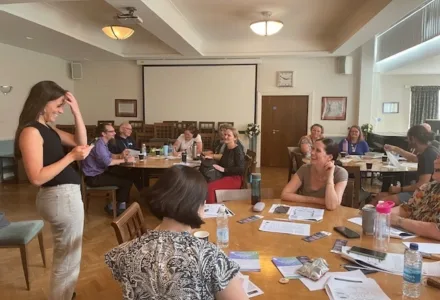Less than one week before the upcoming United States Presidential Election, we are hosting a panel discussion on Wednesday 30th October starting at 5:30 pm.
Centred around understanding the forthcoming election, panellists from BGU and the University of Lincoln are coming together to discuss what the result could mean for the US, the UK, and the rest of the world.
On Thursday 24th October, one of the panellists, Dr Tim Galsworthy, Lecturer in History and Military History at BGU, joined presenter Scott Dalton on BBC Radio Lincolnshire to discuss next Wednesday’s event.
Tim said: “Unlike in the UK, in the US your vote is to directly choose who you want to sit in the White House.”
The 60th quadrennial presidential election taking place on Tuesday 5th November will see either Donald Trump or Kamala Harris become President of the USA.
Tim continues: “I think what we can safely say is that it’s going to be incredibly close – it’s going to depend on a few swing states and subsequently, a few votes within those states.
“Anyone who says they know for sure are not telling you the truth!”
To join two of our lecturers and guest academics for an insightful discussion, you can register your attendance through Eventbrite here.
Panellists include Dr. Finn Pollard and Dr. Mike Slaven from the University of Lincoln alongside Dr. Hannah Grenham and Dr. Tim Galsworthy from Bishop Grosseteste University.
Entry to the panel discussion is free and open to staff, students, and the general public. Doors open to The Venue at 5:00 pm for a 5:30 pm start.
Previous Article
University Professor co-authored the British Sleep Society’s case for Permanent Standard Time
Next Article
Being Human Festival at BGU!
Related Posts

Greater Lincolnshire Social Economy Academy event hosted on campus!

BGU Historian contributes expertise at UK-Ukraine Roundtable

Autism Art Club Exhibition

Ermine Library and Community Hub celebrates National Numeracy Day with local community!

Foundation Year Showcase 2025

Supporting Lincolnshire’s libraries and local history month
